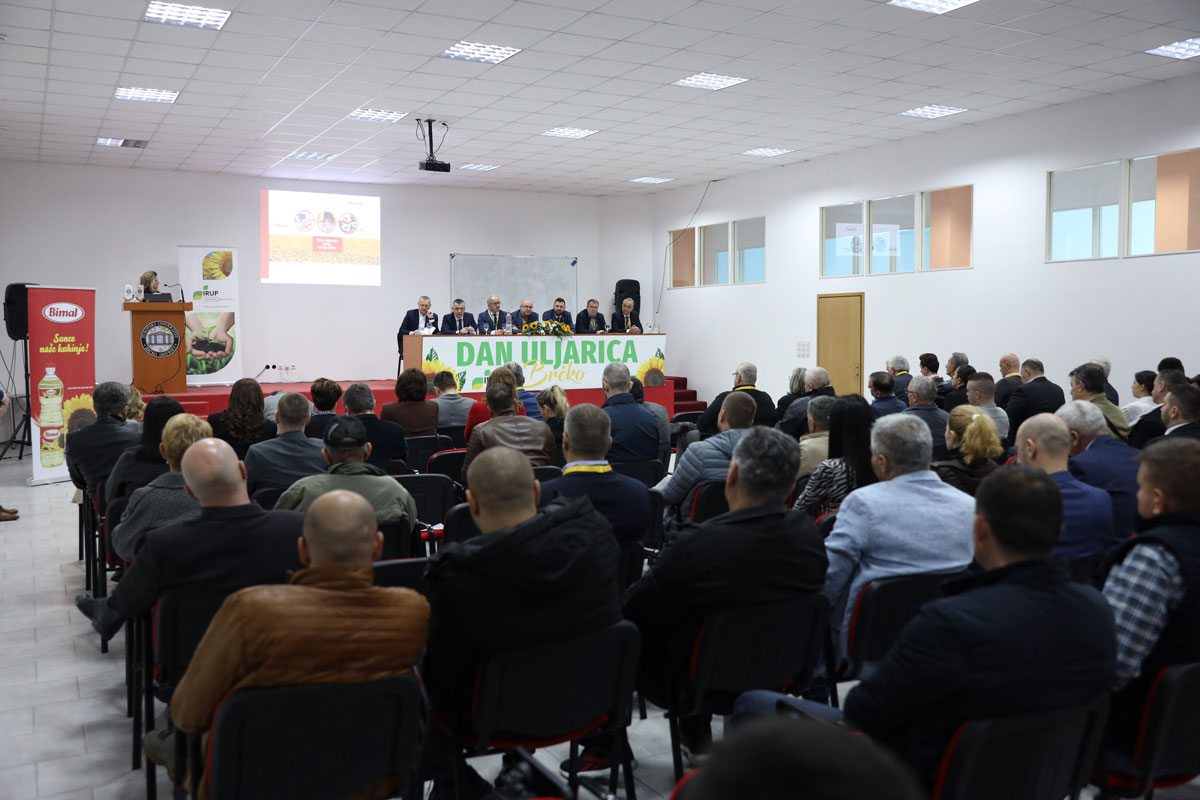The Institute for the Development and Improvement of Agriculture – IRUP Brčko and the BIMAL company held the Day of Oilseeds on the topic “Agricultural potential of BiH – can we resist imported food”.
The natural potential of Bosnia and Herzegovina, agricultural incentives as well as cooperation with large producers such as the BIMAL company can be key elements in the fight against excessive food imports in the previous period.
“Domestic producers encounter a large number of different administrative and economic challenges every day, however, in cooperation with institutes such as ours and by connecting farmers with government representatives, we try to find common solutions that will help highlight the importance of domestic production and therefore affect the reduction of food imports” pointed out Azelea Suljkanović, director of IRUP Brčko.
Suljkanović emphasized that she is particularly pleased that for the nineteenth time in a row IRUP and the company BIMAL dd have traditionally gathered over 150 agricultural producers and officials on the Day of Oilseeds. This event is a unique opportunity to share experiences and to talk about why it is important to improve domestic agricultural production because when there are major economic crises such as the COVID crisis or now the conflict in Ukraine, then we see that food imports significantly affect prices final products. Having your own domestic production means resisting large price fluctuations and preserving your market, and consequently your consumers.
“Farmers at such an event have the opportunity to communicate directly with government representatives and get answers to questions that are of great importance for their business and survival in difficult market conditions,” said Suljkanović.
Panel participants were representatives of the Ministry of Agriculture of the Republika Srpska and the Federation of Bosnia and Herzegovina, the Department of Agriculture of the Brčko District, and the Ministry of Agriculture of the Posavina County along with the organizer of agricultural production. Through the discussion and interaction of the participants, it was concluded that producers can be stimulated by planning production and various incentives and subsidies so that in BiH market reduced food imports.

